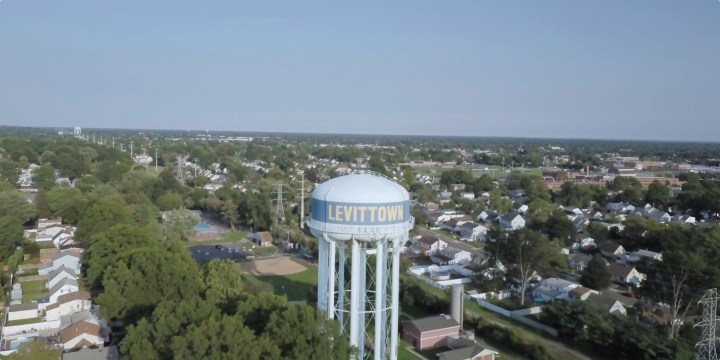
Tracing America’s long history of racial housing discrimination
Tracing America’s long history of racial housing discrimination

For much of the last century, home ownership has been touted as one of the most important ways to build wealth in America. But a long history of discriminatory housing policy — from overt racial segregation to redlining to biased lending practices — has systemically excluded Black families from that pathway to wealth creation.
A new documentary, “Owned: A Tale of Two Americas,” traces that history.
“People see that there’s a problem but feel helpless at how they can affect change. And the question is: What do we do with that knowledge?” director Giorgio Angelini said in an interview with Marketplace’s David Brancaccio. The following is an edited transcript of their conversation.
David Brancaccio: In the film, the point is made that two veterans getting out of the Second World War — one Black, one white, on similar economic footing — yet, what does the white veteran get that the Black veteran doesn’t?
Giorgio Angelini: There was a social contract that was made with veterans following World War II that set into motion, arguably, the biggest growth in middle-class history around the world, and it all centered around homeownership. And it was very deliberately created to benefit one group of people at the expense of the other. And so, for me, making “Owned” was really about not just retelling the story, historically, but also looking at really the idea of the home.
Brancaccio: Because they’re one of our greatest stores of wealth. Real estate is a key way that people can change their economic circumstance.
Angelini: Yeah, absolutely. There’s no bigger predictor of one’s ability to move up socioeconomically than the ZIP code that they were born into. And it’s a real shame that we have a system where we’ve placed the home as the center of everything — it defines where you go to school; it defines your ability to retire with dignity.
Brancaccio: Here from the film as a clip of Amanda Seward; she’s a resident of Mar Vista, California, which is a little like Levittown on Long Island — one of those postwar planned communities. And she talks about her neighborhood’s segregated past:
Amanda Seward: The [Federal Housing Administration], at the time, didn’t think that integrated neighborhoods would be attractive to the general public — and they’re providing mortgage insurance, and in their minds that would bring down the value of the homes. [For] most people in America, the value of those homes and parents passing that on to their children, that’s made the biggest difference. African-Americans were left out in that.
Brancaccio: So, what’s the larger truth? Just that the policy is rigged?
Angelini: In some sense. One of our main characters in the film is a retired New York police officer named Jimmy who lives in Levittown. And through his eyes, you see, I think what a lot of Americans are dealing with — people who don’t consider themselves to be prejudiced, but all the same, benefited from a system that overwhelmingly benefited them at the expense of others:
Jimmy Silvestri: The only thing that Levittown did that was wrong, and I’ll be the first one to admit this: No Blacks allowed. And that is disgraceful.
Angelini: And he’s someone who grew up in inner city New York, in neighborhoods that we now consider to be historically Black — Bed-Stuy, in his case — but neighborhoods that were actually quite integrated when he was growing up there. And because of the heavy hand of the government; because of these policies, his family was able to move out to the suburbs like Levittown. And I think Jimmy encapsulates so much of the emotional strife that’s going on in America right now, where people see that there’s a problem but feel helpless at how they can affect change. And the question is: what do we do with that knowledge? And in so many cases, the knee jerk reaction is often to get very defensive and angry rather than find solutions.
There’s a lot happening in the world. Through it all, Marketplace is here for you.
You rely on Marketplace to break down the world’s events and tell you how it affects you in a fact-based, approachable way. We rely on your financial support to keep making that possible.
Your donation today powers the independent journalism that you rely on. For just $5/month, you can help sustain Marketplace so we can keep reporting on the things that matter to you.












